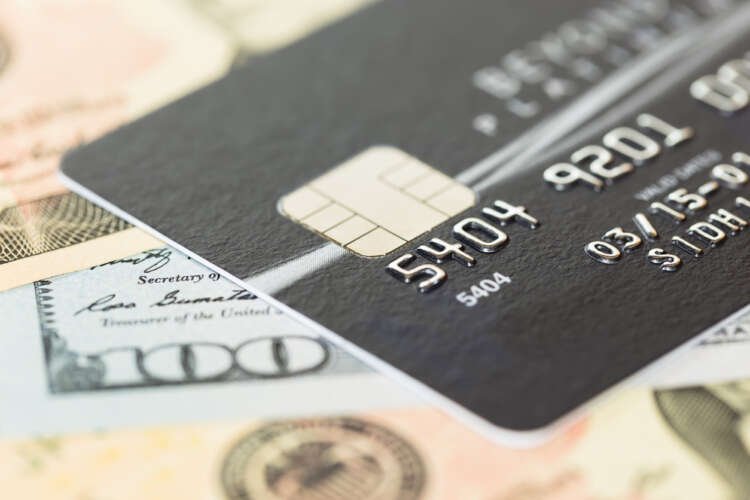Cash vs. Card: What is the best option for protecting your money?
Published by Jessica Weisman-Pitts
Posted on November 11, 2022
4 min readLast updated: February 3, 2026

Published by Jessica Weisman-Pitts
Posted on November 11, 2022
4 min readLast updated: February 3, 2026

By Jairo Riveros, chief strategy officer and managing director of the U.S. and Latin America at Paysend
We’ve all heard about credit card fraud which can happen both physically and virtually, but using cash also carries risk. Either way, using cash or a credit card can leave you vulnerable, but what if one could be more easily avoided or managed?
Before diving into the pros and cons of using credit cards vs. cash, we must first understand who is most at risk for becoming a target of financial fraud schemes.
Who is more at risk for financial fraud?
While scams target people of all ages, older populations, particularly those who are 60+ in age, are most at risk as they are not digital natives. This vulnerability can leave older generations fearful of utilizing more modern ways of managing money such as credit cards or digital wallets. Because of this fear, older demographics more often default to cash options.
In addition to age, ethnicity is a common factor that plays into money management habits and vulnerabilities. For instance, despite the recent high growth of the fintech market in Latin America, cash remains king. In fact, across Latin America, cash is used for 36% of point-of-sales payments while credit cards are only the second most popular choice.
Also, due to historically low prioritization by traditional financial institutions, nearly 70% of Latin America’s population remains underbanked or unbanked. Adding to the problem, many Latin Americans distrust these traditional banking methods, which leads to a lower acceptance of digital payments across the region.
Cash vs. Card: Which will you choose to keep your money safe?
To reduce the risk of being a victim of financial fraud, it’s important to know the pros and cons of using either cash or a credit card. Here are a few key points to keep in mind:
Let’s start with paper money.
A benefit of cash is that it’s universal and has been around for ages. All generations and backgrounds are familiar with the concept of money in a physical form. In addition to familiarity, using paper money is also a way to bypass hidden fees and handling costs. Using cash also carries the psychological benefit of helping users avoid or reduce debt and impulse purchasing. Despite these benefits, any time paper money is used for a business or personal purchase, the risk of error increases.
For example, cash can easily be misplaced, lost or even stolen. Because cash is not traceable, it is harder to recover in instances of theft or loss. By choosing cash over card, people may also miss out on opportunities to build credit, have to deal with ATM withdrawal fees, or go through the difficulty of manual record keeping.
Finally, when a person chooses to rely solely on cash, they may be less prepared for higher cost, unexpected purchases or a store that doesn’t accept cash as payment. Afterall, contactless transactions represented 43% of purchases in 2021.
Now, let’s dive into the pros and cons of card or digital wallet transactions.
First and foremost, digital money can be easier to manage, often offering users the option to build credit, earn rewards and keep track of their records automatically. But in the instance of fraud where cash is less traceable, cards provide consumers with a sense of security due to greater regulatory requirements. For instance, if a card is stolen or someone’s account is hacked, cards can easily be canceled. Many providers are even able to refund fraudulent expenses if notified appropriately.
Digital options are not without their drawbacks. Spending limits, risk of poor credit scores and the heightened potential of overspending are all factors credit card users should take into consideration. Also, while fees may be unavoidable, there are options that offer protection from unexpected, high costs. Be sure to ask your carrier for their recommendations to easily avoid these risks.
Unfortunately, fraudsters are always lurking and creating new and smarter ways to get the information needed to financially scam both weary and unsuspecting victims. With that, I leave you with this tip: no matter which option you choose to steward your finances, by proactively managing your accounts and staying on top of your money habits, you can better safeguard your finances to minimize vulnerabilities and mitigate damages in the case that fraudulent activity occurs.
About Author:
Jairo is the Chief Strategy Officer and Managing Director of the U.S. and Latin America at Paysend, a global fintech payments company born in 2017, based in the UK and regulated by the FCA, servicing over 7 million customers, reaching 170+ countries worldwide.
Credit card fraud is a type of financial fraud that involves the unauthorized use of someone's credit card information to make purchases or access funds.
Financial fraud refers to any act of deception carried out for the purpose of financial gain, often involving the manipulation of financial information or assets.
An underbanked population refers to individuals who have limited access to traditional banking services, often relying on alternative financial services.
A digital wallet is an electronic application that allows users to store and manage their payment information and make transactions using their mobile devices.
Contactless transactions are payments made by tapping a card or mobile device near a point-of-sale terminal, using technologies like NFC (Near Field Communication).
Explore more articles in the Banking category











